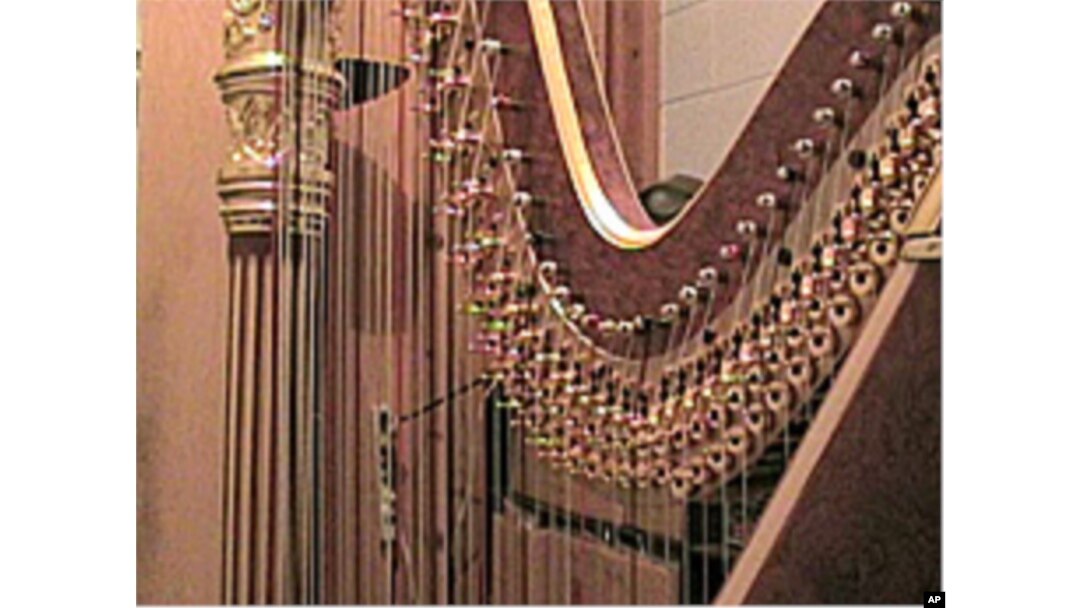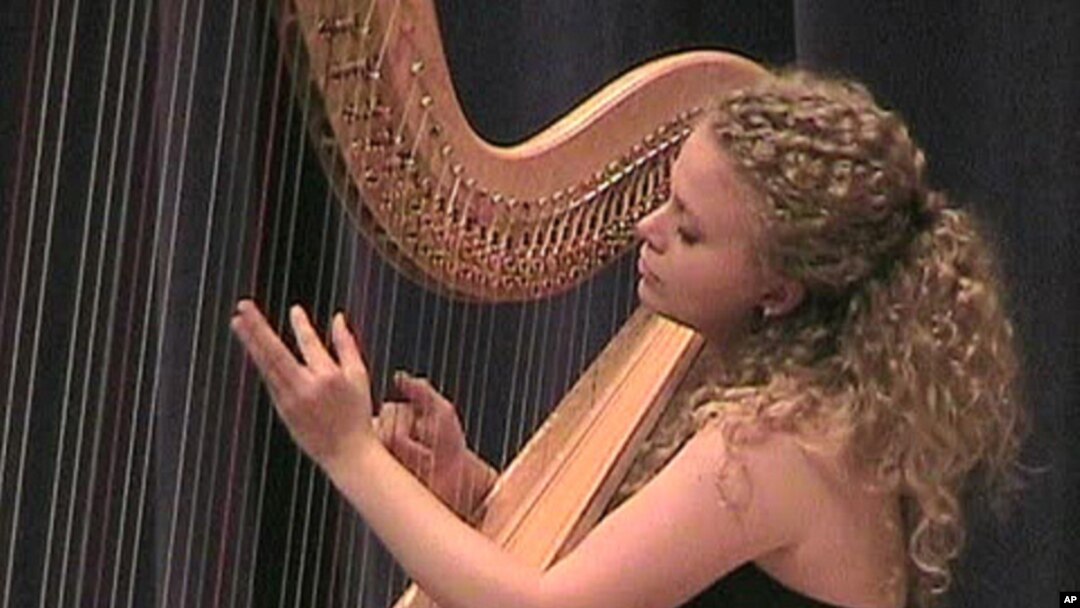Harps can provide some of the most ethereal and magical sounds in the modern orchestra, yet they are seldom heard as a solo instrument.
Two decades ago, the prestigious Jacobs School of Music, on the campus of Indiana University changed that with the creation of the USA International Harp Competition, or IHC, what's now considered the Olympics of Harp.
Harp Olympics
Every three years, during the 10-day International Harp Competition, Indiana University is filled with unmistakable sounds.
This year 39 harpists, from 19 countries including Iceland, Italy, and Taiwan, were selected to compete for the 2010 title.
Twenty-five year old Lena-Maria Buchberger came all the way from Germany for a chance at the gold. She's been mesmerized by the harp since she heard it in a concert when she was only six.
"Maybe the point of fascination is that you cannot really put it into words, it just pulls you towards it," says Buchberger. "You feel that it is yours. I don't specifically know what I love so much about it, but I know it every day."
Because many contestants are from overseas, most do not bring their instrument with them. Therefore, they must juggle for practice rooms, diligently working behind closed doors, and scrambling for extra time on the harps loaned by the prestigious Lyon & Healy Harp Company of Chicago.
Scoring points
Harpists are not only judged on technical merits, but also presentation and implied values, such as work ethic, diligence, and generosity.
Every contestant plays four memorized solo pieces on stage, choosing their music from a list of 20 IHC selections. This helps the internationally assembled jury determine skill level, so they can cut the number of contestants in half.
"Even if you don't advance to further stages, you're going to learn a lot, just from preparing," says Buchberger. "That's why I'm here."
While advancing their knowledge is a bonus, IHC Executive Director Andrew Bratton explains there are several more important reasons most musicians compete.

The winner of the harp competition wins a custom-made Lyon and Healy gold concert harp valued at $55,000.
"The gold medalist, the first place participant in the harp competition wins a custom-made Lyon and Healy gold concert harp, made specifically for the USA International Harp Competition. The harp is valued $55,000."
Stringing along
And winning the competition can jumpstart a young harpist's career.
Past winners are now playing for Moscow's Bolshoi Ballet, the Paris Opera, and the Vienna Philharmonic. Many have also received recording contracts and gone on to professorships with esteemed academies and universities.
Something that is especially important in the current economic situation.
"Many orchestras in the past had carried two harpists all of the time, now there are very few, maybe even just a handful that have more than one harpist as part of their regular orchestra," says Bratton. "So many of the students that are studying here have the prospect of looking at very limited job possibilities, or only semi-fulltime job possibilities, much like a struggling actor or artist."
The competition means so much to Maryanne Meyer, 28, a graduate of Indiana University, that she's back for her second try.
"There's no bows, there's no hammers, there's no keys, it's just your fingers on the strings," says Meyer. "So it's a very direct way to create music and communicate that with your audience."
Maryanne Meyer, 28, was one of 39 harpists from 19 countries competing in the USA International Harp Competition.
Career builder
That's what Susann McDonald was hoping to give the world when she created the competition.
A renowned musician in her own right, McDonald built an unheard of career as a solo harpist in the 1950s, and later helped establish harp programs at UCLA, Julliard, and Indiana University.
"So to have this chance to really hear the harp in all of its glory, to realize the vast tonal possibilities of the instrument in all the styles that can be played so effectively, I think everybody comes away loving the harp," says McDonald.
The eight semi-finalists perform music they've selected as well as a new work for the harp.
"We have a composition winner contest, where we've selected a new composition for solo harp and all eight of those contestants must play that composition," says Janet Smith, a board member. "And then three of the eight will be selected to be finalists. In the final stage, all three play a concerto with the summer music orchestra."
There's a lot at stake for these young musicians. Maryanne Meyer says she overcomes contest jitters by treating the competition as she does any performance.
"I wasn't out there today, trying not to make mistakes, or trying to impress the jury. I was just trying to give a good performance for my audience, to reach them and give them something to smile about, and remember when they go home."
While neither Maryanne Meyer nor Lena-Maria Buchberger won this year's IHC, both say the experience left them smiling. This year's top prizes went to harpists from France, Japan, and Russia.


